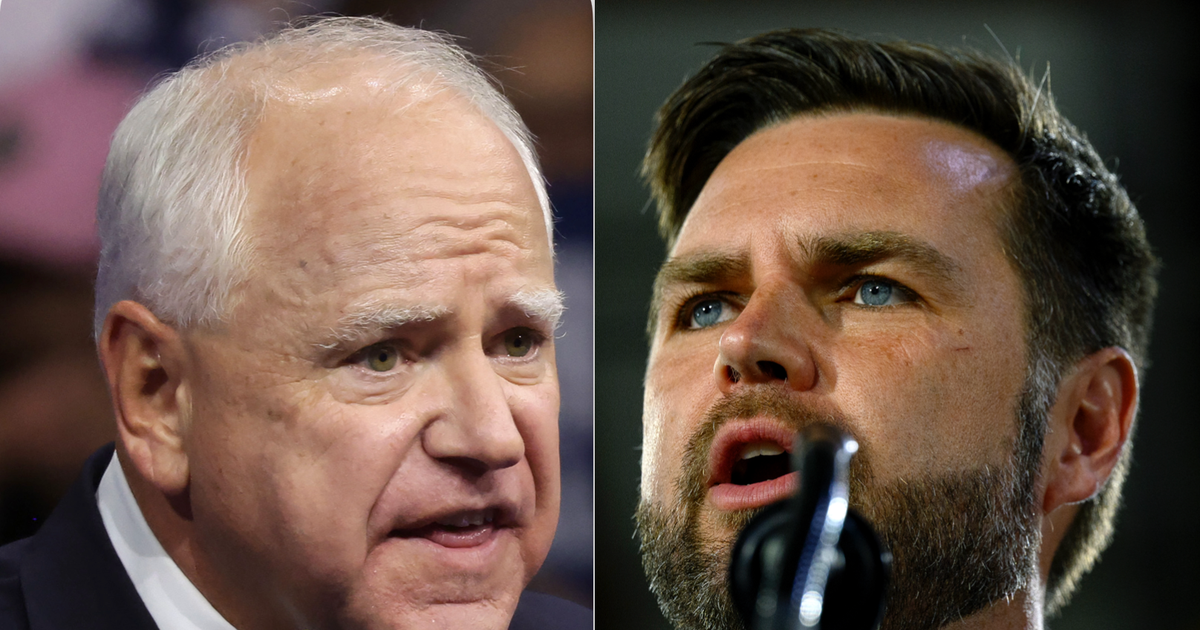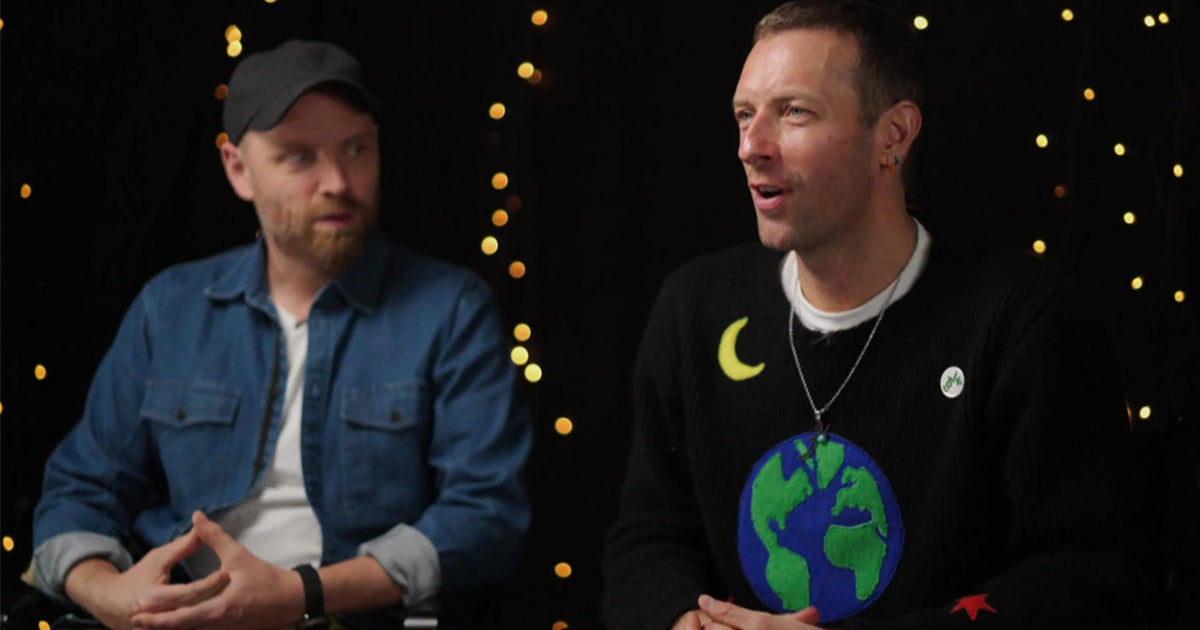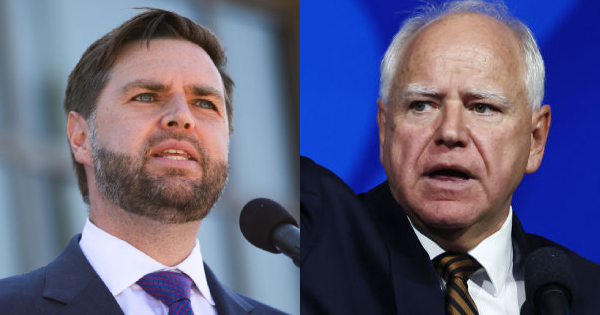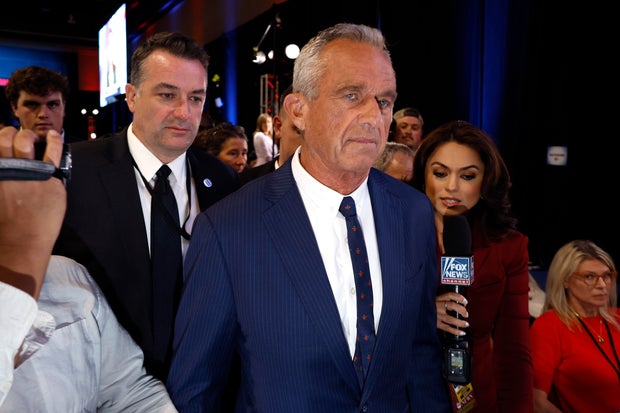CBS News
How the VP debate rules will work for the Walz-Vance 2024 showdown

Republican vice presidential nominee Sen. JD Vance and Democratic vice presidential nominee Gov. Tim Walz will meet for their first and only debate on Tuesday, hosted by CBS News at the CBS Broadcast Center in New York.
The VP debate begins at 9 p.m. ET, and will be moderated by “CBS Evening News” anchor and managing editor Norah O’Donnell and “Face the Nation” moderator and chief foreign affairs correspondent Margaret Brennan.
Here are the rules for the debate, as laid out by CBS News:
How will the VP debate begin and who will stand where?
Walz will stand behind the podium on stage left, which is the right side from the viewpoint of the moderators and on screen. Vance’s podium will be on the opposite side. Walz and Vance are to remain behind their podiums for the duration of the debate. They will be introduced by the moderators beginning with the candidate of the incumbent party, meaning Walz will be introduced first.
Will there be opening statements?
There will be no opening statements.
How long will the VP debate last?
There will be 90 minutes of debate time, starting at 9 p.m. ET, with two breaks of four minutes each.
Will there be an audience?
Like the debate between Vice President Kamala Harris and former President Donald Trump in Philadelphia, there will be no audience in the studio.
How long will candidates have to answer questions?
For each question, the candidate who was asked the question will have two minutes to answer, and the other candidate will be allowed two minutes to respond. Following that, each candidate will have one minute for additional rebuttals. And the moderators may at their discretion give candidates an additional minute each to continue a topic.
Lights in front of each candidate will indicate how much time they have left to speak. The candidates will also each have a countdown clock.
The moderators will be seated and will be the only ones in the room permitted to ask questions.
Closing statements
At the end, candidates will have two minutes each for closing statements. A coin toss was held on Sept. 26 to allow the winner to choose the order of closing statements. Vance won the toss, and elected to go second, so he will have the final word.
Will mics be muted while the other candidate talks?
CBS News reserves the right to mute the candidates’ microphones, but otherwise, they will be hot.
Will candidates get questions in advance?
Candidates will not receive any questions in advance, nor will they receive any topics in advance.
Additionally, campaign staffers are not permitted to interact with Walz and Vance during breaks. And candidates are not allowed to have props or pre-written notes on the stage. They will be given a pen, a pad of paper and a water bottle.
CBS News will host the only planned vice presidential debate between Vance and Walz on Tuesday, Oct. 1, at 9 p.m. ET on CBS and CBS News 24/7. Download the free CBS News app for live coverage, post-debate analysis, comprehensive fact checks and more.
CBS News
Supreme Court denies RFK Jr.’s bid to be reinstated on New York ballot

Washington — The Supreme Court on Friday rejected a bid by independent presidential Robert F. Kennedy Jr. to restore his name to New York’s general election ballot.
The unsigned order from the court leaves intact a lower court decision declining to place his name back on New York’s ballot ahead of the Nov. 5 contest. Kennedy mounted an unsuccessful independent bid for the White House and, after suspending his campaign last month, is working to have his name removed from ballots in more than a dozen states.
He has since endorsed former President Donald Trump, the Republican nominee.
Kennedy asked the high court in an emergency appeal this week to reinstate his name in the Empire State, arguing that his supporters “have a constitutional right to have Kennedy placed on the ballot — and to vote for him, whether he is campaigning for their vote or not.”
“Whatever inconvenience the [state] may have in adding Kennedy to the ballot seven weeks before the election, it seems inconceivable that those difficulties or expenses could outweigh the constitutional rights of 108,417 New York voters,” his campaign told the court in its request for emergency relief.
Chip Somodevilla/Getty Images
The dispute arose after Kennedy collected more than 120,000 signatures to appear on New York’s ballot. The signatures were submitted to the state elections board in May, which went on to certify their validity and vote to place Kennedy on the ballot.
But several individuals filed a lawsuit in state court challenging Kennedy’s nominating petition. A state court and appeals court both ordered the board to keep Kennedy off the ballot on the grounds that his nominating petition listed an invalid address for the presidential hopeful. State law requires a nominating petition to show the candidates “place of residence” which is defined as their “fixed, permanent and principal home.”
The address in Katonah, New York, that Kennedy listed on his petition belongs to a friend, whom he paid $500 a month beginning in May for a room that he and the friend both say he has stayed in just once.
Kennedy said in a sworn declaration filed with a federal court in New York that he is registered to vote in the state and “for consistency purposes” was advised by his election law counsel to use the Katonah address on the nominating petition and other state petitions requiring a residence.
But the state appeals court concluded that the Katonah address wasn’t Kennedy’s “fixed” or “permanent” home, and determined he never lived there. New York’s top court, the Court of Appeals, declined to review the lower court’s decision.
While the state court proceedings were underway, Kennedy’s campaign challenged his exclusion from New York’s ballot in federal court, claiming the state’s residence requirement is unconstitutional. A district judge and the U.S. Court of Appeals for the 2nd Circuit, however, declined the campaign’s request to restore Kennedy to the ballot.
The Board of Elections issued a certification of New York’s general election ballot on Sept. 11 that omitted Kennedy from it.
Kennedy, the son of the late Robert F. Kennedy and nephew of John F. Kennedy, argued in a filing with the Supreme Court that the address on his nominating petition is “entirely immaterial” to voters and to New York, and said the residence requirement is not related to a qualification to run for the presidency.
His campaign also argued that disclosing a “controversial” public figure’s home address puts him and his family at risk.
“It can result in round-the-clock demonstrations outside his house, attacks on his home, and harassment of his family, including his children,” Kennedy’s campaign argued. “This is a severe burden to impose on a presidential candidate on pain of exclusion from the ballot.”
The Board of Elections urged the Supreme Court to reject Kennedy’s request, noting that not only has the ballot certification deadline already passed, but so has a federal deadline for mailing ballots to overseas and military voters, which was Sept. 21.
“The requested injunction would not only severely disrupt the state’s election processes and trigger substantial voter confusion, but also cause New York to miss federal deadlines for mailing overseas and military ballots and potentially disenfranchise voters who receive and vote the original ballot,” state officials wrote in a Supreme Court filing.
They also noted that Kennedy has already called off his own presidential campaign, endorsed Trump and is in court in other states to remove his name from their ballots.
“Kennedy’s purported concern for his petition signers’ rights is highly questionable given his attempts to remove his name from the ballots in other states,” New York officials said. “Meanwhile, voters who may not be aware of Kennedy’s suspension of his candidacy may be misled by his presence on the ballot into thinking that he remains a bona fide candidate for the presidency.”
Kennedy’s suspension of his campaign came after months of fighting to get on the ballot in every state and Washington, D.C. At the time, he said he would seek to have his name removed from the ballots in 10 states that his campaign considered competitive because it risked harming Trump’s chances of winning the election against Vice President Kamala Harris. He also endorsed Trump, but said his supporters should still vote for him in states where it would not be to the detriment of the Republican nominee.
But Kennedy later encouraged his supporters in every state to vote for Trump and has sought to remove his name from the ballot in more states than the original 10. According to CBS News’ latest tally, Kennedy’s name won’t appear on the ballot in 18 states.
His campaign website now declares “a vote for Trump is a vote for Kennedy.”
In August, a Georgia judge determined Kennedy was “not qualified” to appear on the state’s ballot, citing questions about his New York residency. Georgia was one of the 10 states where Kennedy wanted his name removed from the ballot and he did not challenge the decision.
While he fights to have his name reinstated in New York, he’s waging a separate battle in Michigan to have his name removed. The Michigan Supreme Court ruled in September to keep him on the ballot. He has appealed to the U.S. Court of Appeals for the 6th Circuit.
Kennedy’s request for relief is the third involving the 2024 election to land before the Supreme Court, though more are expected. The justices in August revived part of an Arizona law requiring documentary proof of citizenship when registering to vote using a state-created form, but declined to allow enforcement of provisions mandating such proof in order to vote for president or by mail.
Earlier this month, it rejected a bid to put Green Party presidential candidate Jill Stein on the Nevada general election ballot.
CBS News
Preview: Chris Martin and Jonny Buckland of Coldplay

Watch CBS News
Be the first to know
Get browser notifications for breaking news, live events, and exclusive reporting.
CBS News
New York City Mayor Eric Adams pleads not guilty to federal charges

Watch CBS News
Be the first to know
Get browser notifications for breaking news, live events, and exclusive reporting.








